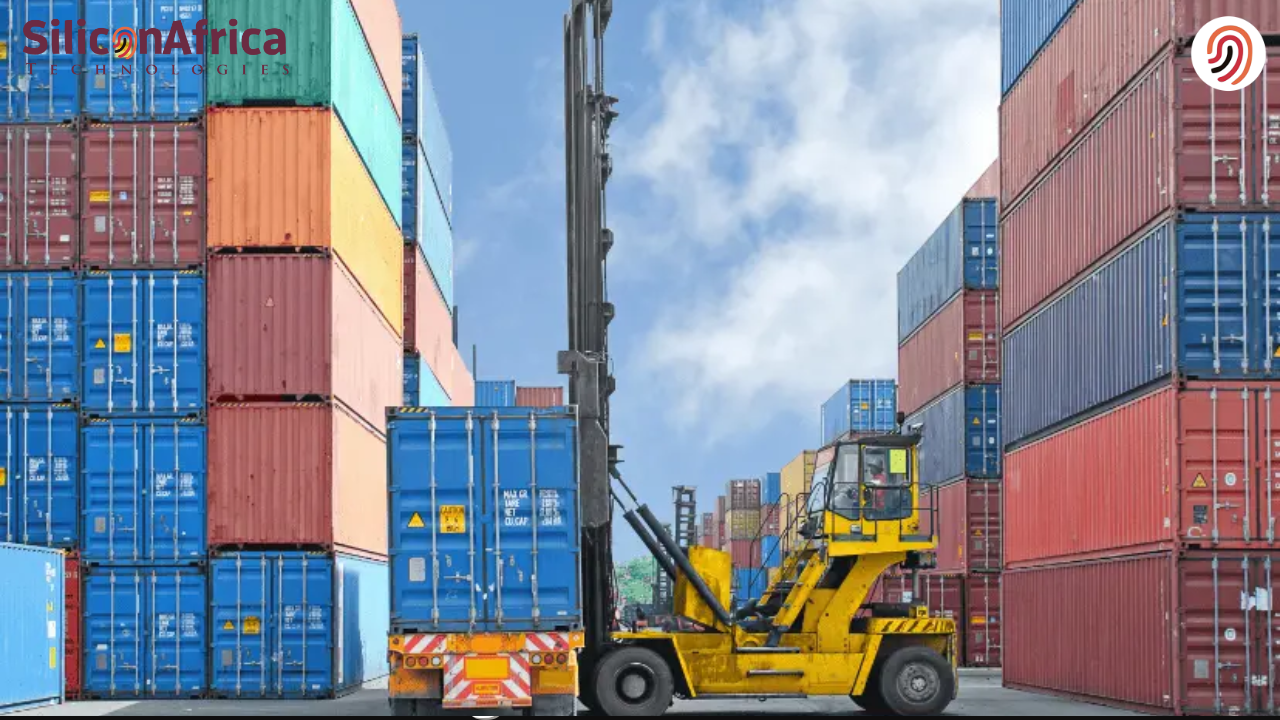Physical Address
60 Ekwema Cres, Layout 460281, Imo
Physical Address
60 Ekwema Cres, Layout 460281, Imo

In Nigeria, the clearing and forwarding industry plays a critical role in facilitating trade and commerce. Thus, becoming a clearing and forwarding agent is not only a lucrative career choice but also an opportunity to contribute to the country’s economic growth.
This comprehensive guide will walk you through the steps to become a licensed clearing and forwarding agent in Nigeria.
From understanding the roles and responsibilities of the profession to navigating the regulatory requirements, this article covers everything you need to know to kickstart your journey in this field.
There won’t be a clearing and forwarding agency without the importation and exportation of goods.
Also read: How Does KCB Agent Withdrawal Charges Work
According to startuptipsdaily.com:
In 2019, Nigeria’s trade volume was estimated at about $1.11 trillion, with exports accounting for $458.4 billion and imports accounting for $648.6 billion. The high volume of trade in Nigeria and Africa has made the Clearing and Forwarding Business a vital aspect of the economy.
The global Clearing and Forwarding Business market size was valued at $166.1 billion in 2020 and is expected to reach $215.6 billion by 2028, growing at a CAGR of 3.3% from 2021 to 2028.
The demand for Clearing and Forwarding Business services is driven by increasing global trade, rising demand for specialized logistics services, and the growing popularity of e-commerce.
In Nigeria, the Clearing and Forwarding Business sector has been growing steadily, with an estimated market size of N100 billion ($250 million) annually.
The country’s strategic location as a gateway to West Africa makes it an attractive destination for Clearing and Forwarding Business.
Additionally, Nigeria has signed several bilateral and multilateral trade agreements that have boosted its exports, presenting significant opportunities for Clearing and Forwarding Business.
This excerpt above underscores the significance of clearing and forwarding business. With that explained, who is a clearing and forwarding agent?
A clearing and forwarding agent is one who helps importers and exporters to ensure the clearing and release of imported goods.
Such an agent must have affiliations with the Nigerian Ports Authority and must be registered.
Clearing agents are also sometimes called customs brokers. They help with declaring cargo and relevant documents to the Customs Authority.
A clearing and forwarding agent plays a crucial role in the international trade process by acting as an intermediary between importers, exporters, and regulatory bodies.
Their primary responsibility is to ensure the smooth movement of goods across borders by managing various logistical, legal, and regulatory tasks.
Also read: How to Baggins Customer Support Agent Job | Full Guide
Below are some of the core duties of a clearing and forwarding agent:
Becoming a clearing and forwarding agent in Nigeria is a profitable venture. This section will explore the necessary steps you must take to become a licensed and seasoned clearing and forwarding agent in Nigeria.
However, before we dive into the processes involved Nigeria, let’s look at the documents that will be required during the application process.
Also read: How to Become a Travel Agent | Full Guide
Before you apply to be a clearing and forwarding agent in Nigeria, you must put together the following documents:
Below is a step-by-step guide on how to become a clearing and forwarding agent in Nigeria.
Also read: How to Become Direct Sales Agent | Full Guide
Before embarking on your journey to becoming a clearing and forwarding agent in Nigeria, it is essential to acquire the relevant skills, certifications, and knowledge about the industry.
Familiarize yourself with Nigerian Customs laws, tariffs, international trade regulations, and logistics and shipping software operations.
Some core soft skills that you should also acquire include:
It is also important to carve a niche for yourself in the industry, as it is a broad one. Specializing in a specific area can help you build a strong reputation and attract the right clients. Some common niches include oil and gas and pharmaceuticals, to state a few.
Also read: M-Pesa Agent Commission | Rate and Structure
The monthly earning of a clearing and forwarding agent in Nigeria is not fixed. You can earn between N70,000 to N250,000 per month, according to online resources.
To get a clearing and forwarding agent license in Nigeria, write a letter of Application to the General Manager (Eastern or Western Ports) and attach the following documents: Certificate of Company Registration, Memorandum and Article of Association, bank reference, three years Tax Clearance Certificate, evidence of registration with Council for the Regulation of Freight Forwarding in Nigeria (CRFFN), and receipts of all required payments. The registration fee is ₦200,000.00, paid to the Nigerian Ports Authority revenue account, and an annual renewal fee of ₦100,000.00
To get updates on Clearing and Forwarding Agent jobs in Nigeria, visit Hot Nigerian jobs. There, you’ll get the most recent postings in clearing and forwarding.
Letter of Application, Certificate of Company Registration, Memorandum and Article of Association, Bank Reference, Three years Tax Clearance Certificate, Evidence of Registration with Council for the Regulation of Freight Forwarding in Nigeria (CRFFN), Receipts of all required payments.
The monthly earning of a clearing and forwarding agent in Nigeria is not fixed. You can earn between N70,000 to N250,000 per month, according to online resources.
The clearing and forwarding industry in Nigeria is both challenging and rewarding. With the right skills and certifications, you can carve a niche for yourself and build a successful career.
Staying informed, building strong networks, and leveraging technology will give you a competitive edge in the market.
To get more tips on immigration, finance, and tech, keep up with our blog for more insightful articles. Follow us on X (formerly Twitter), @SiliconAfriTech, for more insightful and trending updates.